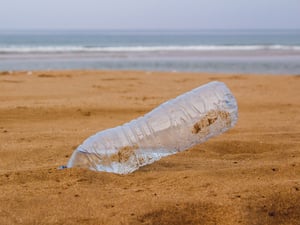The impact of plastic pollution in the sea is of major global concern and is fast becoming a Marine industry emergency – here’s how business leaders can improve Marine sustainability.
Plastic in the Sea: Direct and Indirect Effects
Marine plastic pollution (MPP) directly affects a variety of Marine-based animals and plants. Plastic in the ocean harms species such as tube worms and barnacles and acts as a platform for viruses and algae. As plastic spreads throughout the ocean, it releases toxic substances carried from plastic’s additives to their polymers during production and from substances absorbed into plastic surfaces when plastic meets seawater.
The indirect effects of Marine plastic pollution include transporting AIS (alien invasive species) across countries and continents and the release of a persistent organic pollutant that causes further long-term damage to Marine life.
Marine Sustainability: A Global Concern

Marine plastic pollution has a cascading effect on global ecosystem function that eventually changes the dynamics of the Earth’s makeup and Eco structure. The global carbon cycle, at the centre of the biophysical basis of the Earth, is already being transformed by plastic in the ocean: the sea’s ability to carry necessary carbon into deep water reservoirs and the ocean’s floor is harmed by the sheer amount of plastic circling in the sea.
Due to the overwhelming presence of microplastics already entering the food chain and the widespread presence of plastic in the ocean overall, Marine plastic pollution is irreversible. However, Marine business leaders and those across the industry can get involved in the solution to prevent further global damage.
Solving Marine Plastic Pollution: Local Solutions, Global Impact
The Marine industry is already generating small-scale solutions to improve Marine sustainability, and with additional support, these initiatives are increasing their impact:
- The 11th Hour Racing Project works with the maritime and sailing industries to restore the ocean by creating different practices to reduce Marine plastic pollution.
- The Seabin Project has launched a variety of floating rubbish bins located in the waters across marinas, docks, yacht clubs and commercial ports. The Seabin can catch 1.5Kg of floating debris every day, including microplastics up to 2mm small, which are currently being ingested by fish and entering the human food chain.
- Since 2015 the 52 Super Series racing teams and event organisers have made a significant contribution to reducing the effects of Marine plastic pollution by removing the use of plastic bottles from yacht racing events and replacing them with aluminium water bottles.
- The 52 Super Series races also provide a water filtration system for teams and spectators. The MAGIC CS150-HL can produce up to 10 million litres of water a day, helping many of the TP52 sailing teams to completely eliminate single use plastic bottles of water.
Learn more about solutions to the plastic problem.





